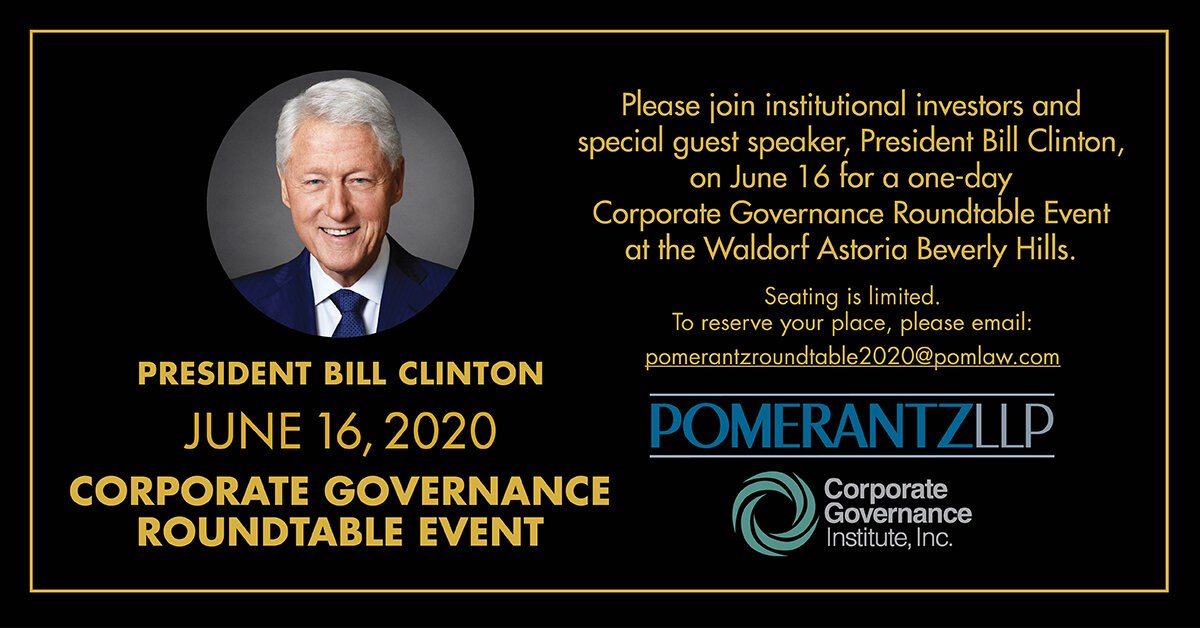Attorney: H. Adam Prussin | POMERANTZ MONITOR January/February 2020
In Lebanon County Employees’ Retirement Fund v. AmerisourceBergen Corp., investors recently won a significant victory in a case seeking access to defendants’ books and records under Section 220 of the Delaware Corporation Law. Section 220 allows stockholders to inspect corporate records if they have a “proper purpose” in seeking disclosure. One such proper purpose is established if they have a reasonable basis for suspecting wrongdoing by directors or management.
AmerisourceBergen is a distributor of pharmaceuticals, including opioid pain medications. It has been accused in a host of other lawsuits of recklessly distributing massive amounts of opioids to many so-called “rogue” pharmacies, amounts well in excess of any possible legitimate uses. These lawsuits include multi-district litigation brought by cities, counties, Indian tribes, union pension funds, and the attorneys general of virtually every state against distributors of opioids. Analysts have estimated that resolution of all these cases will likely result in payouts by the three main opioid distributors, including AmerisouceBergen, in the $100 billion range. It seems unsurprising, under these circumstances, that stockholders in the company would have a legitimate concern in determining whether directors or management did something wrong.
For decades the Delaware courts have been urging shareholders to use the “tools at hand,” inspection of corporate records under Section 220, to discover specific facts before commencing litigation against the company or its officers and directors. With those specific facts, stockholders who do decide to bring an action will be better able to plead claims with enough detail to survive the inevitable motion to dismiss.
In this case the investors’ demand for inspection stated that they sought to “investigate whether the Company’s Directors and Officers have committed mismanagement or breached their fiduciary duties” by failing to assure themselves that the company was avoiding suspiciously large sales to rogue pharmacies.
Given the magnitude and seriousness of the litigations that were already swirling around the company, one would have thought that it would be easy to show that the investors had a “reasonable basis” to infer that mismanagement or other breaches of fiduciary duty may have been committed. The court agreed, holding that “the wave of government investigations and lawsuits relating to AmerisourceBergen’s opioid-distribution practices is sufficient to establish a credible basis to suspect wrongdoing warranting further investigation.”
In recent years, some cases have upped the ante in requirements investors must meet to satisfy the “reasonable basis” burden. Notable was a Section 220 case brought by Pfizer stockholders, where the court seemed to agree that before they could look at any books and records, stockholders had to show that they already had evidence of actionable wrongdoing.
Vice Chancellor Laster, however, held that this is not the applicable standard on an action under Section 220. Noting that the “credible basis” standard is “the lowest possible burden of proof,” he held that it does not require that the investors prove that they already had enough facts and evidence to prevail on a specific breach of duty claim. If that were the standard, the investors would have no need to inspect the records. The court held that the reasonable basis standard was satisfied here because “there are legitimate issues of wrongdoing. … The stockholder need only establish by a preponderance of the evidence that there is a credible basis from which the court can infer a possibility of wrongdoing. A stockholder is not required to prove by a preponderance of the evidence that wrongdoing and mismanagement are actually occurring” or even that they are probably occurring. A plaintiff may meet the “credible basis” standard by making “a credible showing, through documents, logic, testimony or otherwise, that there are legitimate issues of wrongdoing.”
Since this was not a decision of the Delaware Supreme Court, we cannot say that this issue has been definitively resolved for all cases. But for now, it helps. A lot.

